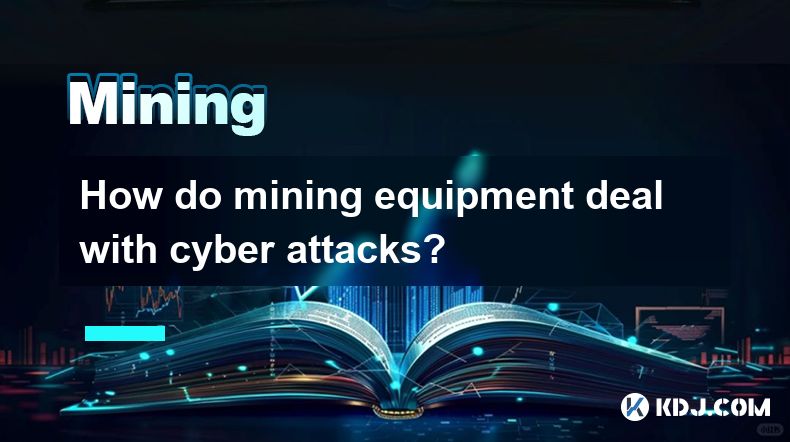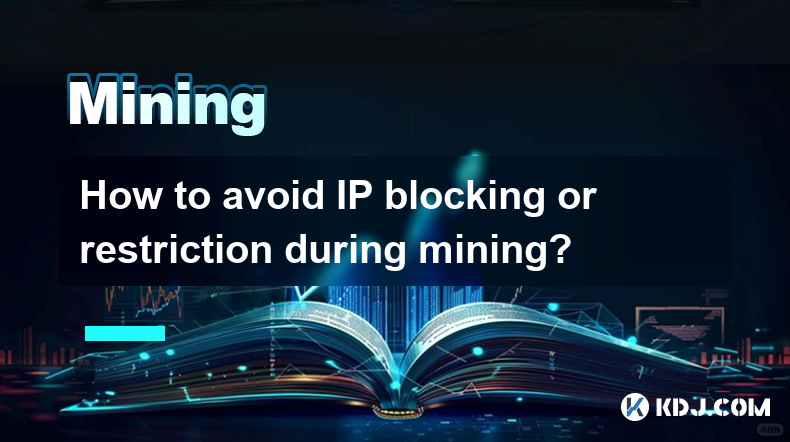-
 Bitcoin
Bitcoin $84,412.2676
-0.67% -
 Ethereum
Ethereum $1,578.6729
-0.92% -
 Tether USDt
Tether USDt $0.9997
-0.03% -
 XRP
XRP $2.0641
-1.56% -
 BNB
BNB $590.2565
1.09% -
 Solana
Solana $133.1528
3.43% -
 USDC
USDC $1.0000
0.01% -
 TRON
TRON $0.2486
-2.49% -
 Dogecoin
Dogecoin $0.1551
-0.16% -
 Cardano
Cardano $0.6195
1.38% -
 UNUS SED LEO
UNUS SED LEO $9.0448
-3.89% -
 Chainlink
Chainlink $12.4389
0.95% -
 Avalanche
Avalanche $19.1160
0.32% -
 Toncoin
Toncoin $2.9801
3.00% -
 Stellar
Stellar $0.2386
1.48% -
 Shiba Inu
Shiba Inu $0.0...01174
-0.95% -
 Sui
Sui $2.1028
0.11% -
 Hedera
Hedera $0.1609
1.18% -
 Bitcoin Cash
Bitcoin Cash $334.5478
3.76% -
 Polkadot
Polkadot $3.6383
2.11% -
 Litecoin
Litecoin $75.0599
-0.04% -
 Hyperliquid
Hyperliquid $16.5153
3.75% -
 Dai
Dai $1.0001
0.01% -
 Bitget Token
Bitget Token $4.3581
0.06% -
 Ethena USDe
Ethena USDe $0.9991
0.00% -
 Pi
Pi $0.6183
-0.05% -
 Monero
Monero $216.0344
-1.40% -
 Uniswap
Uniswap $5.1688
-0.28% -
 OKB
OKB $50.4625
-2.46% -
 Pepe
Pepe $0.0...07178
0.05%
How do mining equipment deal with cyber attacks?
Cryptocurrency mining demands robust security: physical safeguards against theft, strong software & network security (firewalls, updates, strong passwords), decentralized pools for resilience, and crucial data backup & disaster recovery plans.
Mar 19, 2025 at 03:21 pm

Key Points:
- Mining equipment is vulnerable to various cyberattacks, targeting both the hardware and the software controlling it.
- Physical security measures are crucial to protect against theft and unauthorized access.
- Software security relies on strong passwords, regular updates, and robust antivirus/antimalware solutions.
- Network security is paramount, requiring firewalls, intrusion detection systems, and secure network configurations.
- Decentralized mining pools can offer some protection against single points of failure and attacks.
- Regular backups and disaster recovery plans are essential to mitigate data loss.
How Do Mining Equipment Deal With Cyber Attacks?
Cryptocurrency mining hardware, while seemingly simple, presents a compelling target for cyberattacks. These attacks aim to steal cryptocurrency, disrupt mining operations, or gain control of the mining equipment for malicious purposes. Understanding the vulnerabilities and implementing robust security measures is paramount.
Physical Security:
The first line of defense is physical security. This involves securing the location where mining equipment is housed. This includes using robust locks, surveillance systems (CCTV), and potentially employing security personnel. Protecting against theft is crucial as stolen miners can be used for illicit activities or simply resold. Access control measures should restrict entry to authorized personnel only. Consider environmental protection as well, preventing damage from flooding or fire.
Software Security:
The firmware and operating systems running on mining equipment are vulnerable to malware and exploits. Regular updates are essential to patch known vulnerabilities. Strong, unique passwords should be used for all accounts and systems associated with the mining operation. Employing robust antivirus and anti-malware software is crucial for detecting and removing malicious code. Regular security audits of the software can help identify and address potential weaknesses.
Network Security:
Mining equipment typically connects to a network, making it vulnerable to network-based attacks. A strong firewall is essential to filter out malicious traffic and prevent unauthorized access. Intrusion detection systems (IDS) can monitor network activity for suspicious patterns, alerting administrators to potential attacks. Using VPNs (Virtual Private Networks) can enhance security by encrypting network traffic. Regularly reviewing network logs can help identify unusual activity.
Decentralization and Pool Security:
Mining pools offer a degree of protection. While a single miner is vulnerable, a large pool diversifies risk. An attack targeting one miner within the pool has minimal impact on the overall operation. However, it's important to choose reputable and secure mining pools with a strong track record. Always research the pool's security practices before joining.
Data Backup and Disaster Recovery:
Data loss can be devastating for mining operations. Regular backups of configuration files, mining software, and any relevant data are essential. A comprehensive disaster recovery plan should be in place to ensure that mining operations can resume quickly in the event of a significant security incident or equipment failure. This plan should outline procedures for restoring data and equipment.
Monitoring and Alerting:
Real-time monitoring of mining equipment and network activity is crucial. This involves using monitoring tools to track performance metrics, identify anomalies, and detect potential security breaches. Setting up alerts for suspicious activity, such as unusual network traffic or unexpected drops in mining performance, can enable swift responses to threats. This proactive approach minimizes potential damage.
Regular Security Audits:
Regular security audits should be conducted to assess the overall security posture of the mining operation. These audits should evaluate physical security measures, software security practices, network security configurations, and data backup procedures. Identifying vulnerabilities and addressing them proactively is key to maintaining a secure environment. Third-party security audits can provide an unbiased assessment.
Hardware Security:
Beyond software, the hardware itself can be a target. Tamper-evident seals can help detect unauthorized access to mining hardware. Regular physical inspections can also identify signs of tampering. Consider using hardware security modules (HSMs) for sensitive cryptographic operations to add an extra layer of protection. Proper grounding and surge protection can safeguard against physical damage.
Advanced Threats:
More sophisticated attacks may involve exploiting vulnerabilities in the mining software or firmware, potentially allowing attackers to remotely control the mining equipment. This necessitates a multi-layered approach to security, incorporating both preventive and detective controls. Staying up-to-date on the latest security threats and vulnerabilities is crucial for mitigating these risks.
Frequently Asked Questions:
Q: What are the most common cyberattacks targeting mining equipment?
A: Common attacks include malware infections designed to steal mining profits, denial-of-service attacks disrupting mining operations, and attempts to gain remote access for control. Theft of the physical hardware is also a significant concern.
Q: How can I protect my mining equipment from malware?
A: Use reputable antivirus/antimalware software, keep the operating system and firmware updated, and employ strong passwords. Regular security scans are also essential.
Q: What is the role of network security in protecting mining equipment?
A: Network security involves using firewalls, intrusion detection systems, and secure network configurations to prevent unauthorized access and malicious traffic. VPNs can enhance security by encrypting network communication.
Q: What are the benefits of using a mining pool from a security perspective?
A: Mining pools distribute risk; an attack on one miner has a less significant impact on the overall operation compared to solo mining. However, selecting a reputable pool with strong security practices is essential.
Q: How important is data backup and disaster recovery for mining operations?
A: Data backups are crucial to mitigating data loss due to attacks or equipment failure. A comprehensive disaster recovery plan ensures business continuity. This should include offsite backups and restoration procedures.
Disclaimer:info@kdj.com
The information provided is not trading advice. kdj.com does not assume any responsibility for any investments made based on the information provided in this article. Cryptocurrencies are highly volatile and it is highly recommended that you invest with caution after thorough research!
If you believe that the content used on this website infringes your copyright, please contact us immediately (info@kdj.com) and we will delete it promptly.
- Pi Network Struggles to Stay Afloat as It Witnesses a Sharp 18% Drop in Price
- 2025-04-18 00:15:12
- Pi Network Drops 18% as Token Unlocks Flood the Market with New Coins
- 2025-04-18 00:15:12
- Fartcoin (FARTCOIN) price surges over 370% from its yearly low, outperforming Bitcoin (BTC)
- 2025-04-18 00:10:14
- How L2 Chains Could Change Dogecoin's Future
- 2025-04-18 00:10:14
- Ripple (XRP-USD) Might Not Be a Household Name, But It's One of the Wealthiest Companies in Crypto
- 2025-04-18 00:05:12
- Bitcoin (BTC) Accumulation Trend Score Has Hit The 0.34 Mark
- 2025-04-18 00:05:12
Related knowledge

How to deal with abnormal noise during mining machine operation?
Apr 17,2025 at 01:35am
Mining machines are essential tools for cryptocurrency miners, but they can sometimes produce abnormal noises that may indicate underlying issues. Understanding how to identify and address these noises is crucial for maintaining the efficiency and longevity of your mining equipment. This article will guide you through the process of dealing with abnorma...

How to maintain anonymity when mining?
Apr 17,2025 at 06:01pm
Maintaining anonymity when mining cryptocurrencies is crucial for many miners who wish to protect their privacy and security. This article will guide you through various strategies and tools that can help you achieve a high level of anonymity while engaging in mining activities. Understanding the Importance of Anonymity in MiningAnonymity in the context...

How to increase income through merged mining?
Apr 17,2025 at 09:22am
Merged mining is a technique that allows miners to mine more than one cryptocurrency at the same time, using the same computational resources. This method can significantly increase income for miners by maximizing the efficiency of their hardware and reducing the overall cost per hash. In this article, we will explore the concept of merged mining, its b...

How to optimize mining machine performance through BIOS settings?
Apr 17,2025 at 08:07pm
Optimizing the performance of a mining machine through BIOS settings can significantly enhance its efficiency and profitability. The BIOS, or Basic Input/Output System, is the firmware that controls the basic functions of your computer and provides runtime services for operating systems and programs. By tweaking certain settings within the BIOS, miners ...

How to deploy mining programs under Linux system?
Apr 17,2025 at 09:57am
Deploying mining programs under a Linux system can be a rewarding endeavor for those interested in cryptocurrency mining. This process involves several steps, from setting up the environment to running the mining software. In this article, we will guide you through the detailed process of deploying mining programs on a Linux system, ensuring you have al...

How to avoid IP blocking or restriction during mining?
Apr 16,2025 at 09:36pm
Mining cryptocurrency is an exciting venture that can yield significant rewards, but it can also come with its own set of challenges. One of these challenges is IP blocking or restriction, which can hinder your mining activities. In this article, we will explore various strategies to avoid IP blocking or restriction during mining, ensuring that you can ...

How to deal with abnormal noise during mining machine operation?
Apr 17,2025 at 01:35am
Mining machines are essential tools for cryptocurrency miners, but they can sometimes produce abnormal noises that may indicate underlying issues. Understanding how to identify and address these noises is crucial for maintaining the efficiency and longevity of your mining equipment. This article will guide you through the process of dealing with abnorma...

How to maintain anonymity when mining?
Apr 17,2025 at 06:01pm
Maintaining anonymity when mining cryptocurrencies is crucial for many miners who wish to protect their privacy and security. This article will guide you through various strategies and tools that can help you achieve a high level of anonymity while engaging in mining activities. Understanding the Importance of Anonymity in MiningAnonymity in the context...

How to increase income through merged mining?
Apr 17,2025 at 09:22am
Merged mining is a technique that allows miners to mine more than one cryptocurrency at the same time, using the same computational resources. This method can significantly increase income for miners by maximizing the efficiency of their hardware and reducing the overall cost per hash. In this article, we will explore the concept of merged mining, its b...

How to optimize mining machine performance through BIOS settings?
Apr 17,2025 at 08:07pm
Optimizing the performance of a mining machine through BIOS settings can significantly enhance its efficiency and profitability. The BIOS, or Basic Input/Output System, is the firmware that controls the basic functions of your computer and provides runtime services for operating systems and programs. By tweaking certain settings within the BIOS, miners ...

How to deploy mining programs under Linux system?
Apr 17,2025 at 09:57am
Deploying mining programs under a Linux system can be a rewarding endeavor for those interested in cryptocurrency mining. This process involves several steps, from setting up the environment to running the mining software. In this article, we will guide you through the detailed process of deploying mining programs on a Linux system, ensuring you have al...

How to avoid IP blocking or restriction during mining?
Apr 16,2025 at 09:36pm
Mining cryptocurrency is an exciting venture that can yield significant rewards, but it can also come with its own set of challenges. One of these challenges is IP blocking or restriction, which can hinder your mining activities. In this article, we will explore various strategies to avoid IP blocking or restriction during mining, ensuring that you can ...
See all articles























































































